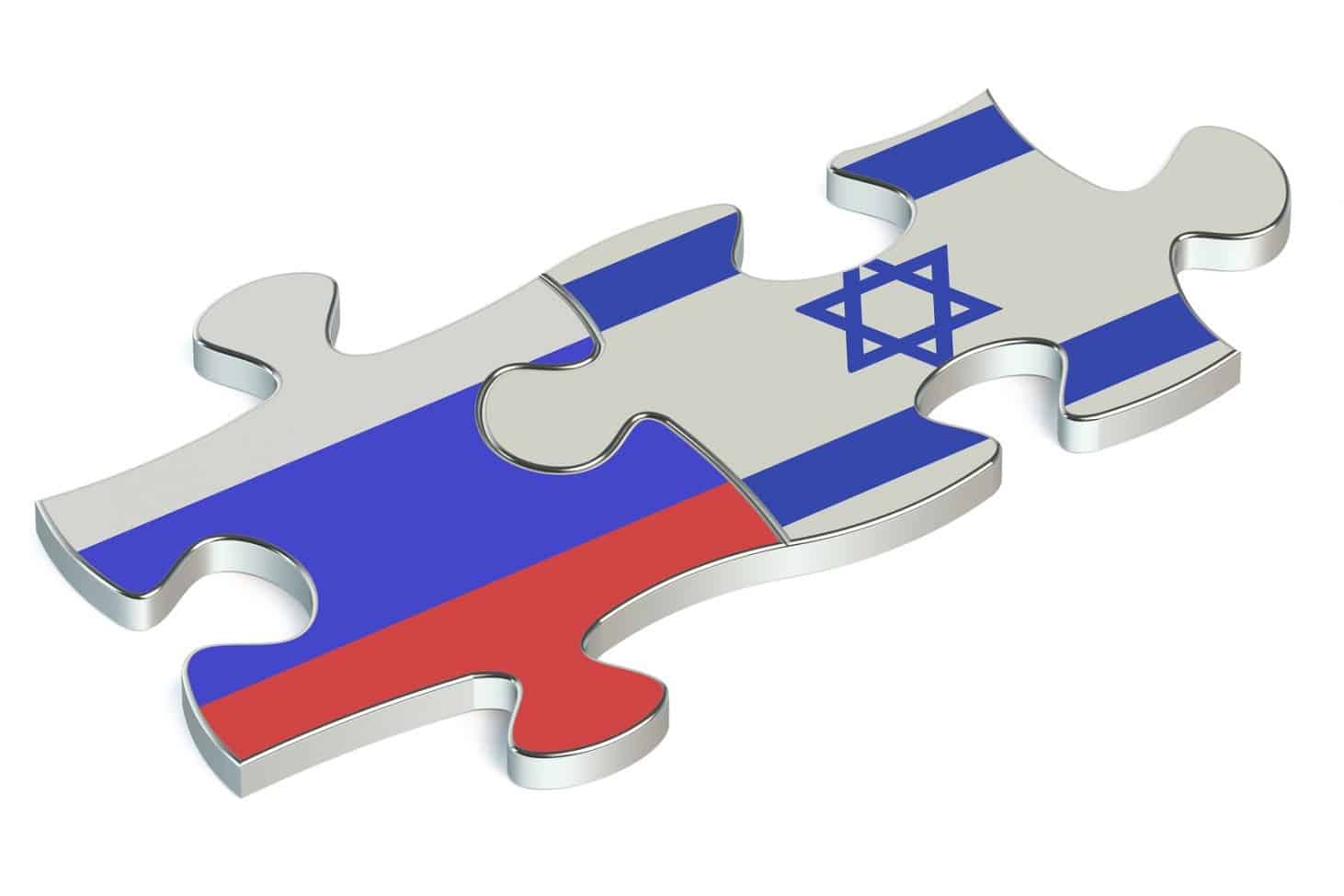The downing of a Russian plane by Syrian artillery after an Israeli strike proves how vital it is to maintain open lines of communications between Israel and Russia. The IDF may have to exercise more restraint, but it will still do what it must.
Israel and Russia maintain an operational hotline meant to prevent unwanted incidents in the area of Syria where Israel is targeting Syrian, Iranian and Hezbollah assets.
Maintaining this line of communication is vital because Syria’s skies are very crowded. The Israeli, U.S., Russian and Syrian air forces fly over this area regularly, the Turkish Air Force patrols over the Syrian-Turkish border, and Iran sends civilian cargo planes through as part of its efforts to smuggle weapons to Hezbollah in Lebanon and Syria.
It is important to stress that Israel does not coordinate its operations in Syria with Russia. Neither Moscow nor Jerusalem wishes to see Russia claim or be held responsible for Israeli strikes on Syrian soil. Maintaining an operational hotline aims to prevent either side from making a lethal mistake and provoking a conflict, hence the hotline’s official name: the deconfliction channel.
Israel’s actions in Syria have always been calculated and prudent, from the moment it began actively thwarting Hezbollah’s armament efforts in 2012 and even more so since 2015, when Russia stepped into the Syrian civil war to shore up President Bashar Assad’s regime. This has prompted Israel to exercise maximum caution as it intensified its efforts against Iran’s attempts to entrench itself militarily in Syria, and the Israeli Air Force has spared no effort to avoid compromising Russian bases, equipment and weapons and avoid even the slightest chance of harming the Russian soldiers deployed in Syria.
This has not been an easy feat, as in many cases Russian and Syrian forces share bases and fight alongside each other, and Israel has dedicated considerable intelligence resources to pinpointing the location of Russian soldiers so it can uphold its commitment to Russia. The highly efficient deconfliction channel has proved essential to these efforts, and the professionalism shown by the Israeli and Russian soldiers manning this hotline has contributed greatly to the fact that in the hundreds of strikes Israel has carried out in Syria since 2015, not one Russian soldier was harmed.
Monday’s incident, in which a Russian Ilyushin 20 reconnaissance aircraft was accidentally shot down by Syrian fire some 35 kilometers (22 miles) off the coast of Latakia as it was returning to a nearby Russian base, killing the 15-man crew, was truly tragic.
However, perhaps more than anything, it reflects the lack of professionalism in the Syrian forces: The Russian plane is not at all similar to the Israeli jets used in striking Syrian targets – it is larger and slower than fighter jets, and as a reconnaissance plane, its flight patterns are different.
Moreover, according to the Israeli military, the IAF jets were safely back in Israeli airspace at the time, so the Syrians would have had to seriously miscalculate to target the Russian plane. If experience had not taught me to accept stupidity as a better explanation than any conspiracy theory, I would have said the Syrians set out to down a Russian plane in order to compromise Israeli-Russian ties. The Syrian forces performed so pathetically it is hard to believe this is their actual professional level, but that does seem to be the case.
Now it is up to Israel to convince the professionals in Russia that it acted in good faith and as always, did everything within its power to prevent any harm from coming to any Russian aircraft, and that it was Syrian negligence that caused this tragedy.
The Russian response, however, will not be made by these professionals, but rather by Russian President Vladimir Putin. He, for his part, would be able to make a more informed decision when he has all the information, and Putin, we must remember, is an experienced leader, who will not let grief over the loss of human life cloud his judgment.
The question of Israel, Russia and Syria’s respective and relative contribution to the tragedy will have an impact on Putin’s decision, as will the explanation that is given to the victims’ families and Russian public opinion, which does not make light of the loss of Russian soldiers. For these reasons, the dialogue with the Russians must be professional, open and completely honest – Israel has nothing to hide and nor should it keep any information from Moscow.
Israel has always been careful to show Russia – a world power – the proper operational and diplomatic deference in the years since it intensified its involvement in the Middle East and it must continue to do so. Still, we must not lose sight of the fact that Israel’s operations in Syria seek to thwart a substantial threat against it, and Iran’s regional efforts must meet a forceful Israeli response.
Russia must be made to understand that Israel will not tolerate Iranian presence in Syria, nor will it abide the Islamic republic’s efforts to arm Hezbollah in Lebanon with game-changing weapons, and it is up to the Israeli government to make that clear.
Israel may find it harder to operate in Syria from now on; it may even have to exercise greater restraint, and it will certainly have to further improve the workings of the deconfliction channel, but we must not get confused: Preventing the Iranian efforts to tighten their grip on the region remains Israel’s top priority and it is up to the IDF to carry out the government’s policy on this matter.
Published in Israel Hayom, 21.09.2018
JISS Policy Papers are published through the generosity of the Greg Rosshandler Family.
photo: Bigstock








 - בניית אתרים
- בניית אתרים